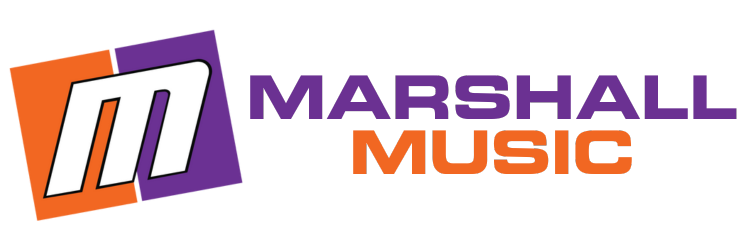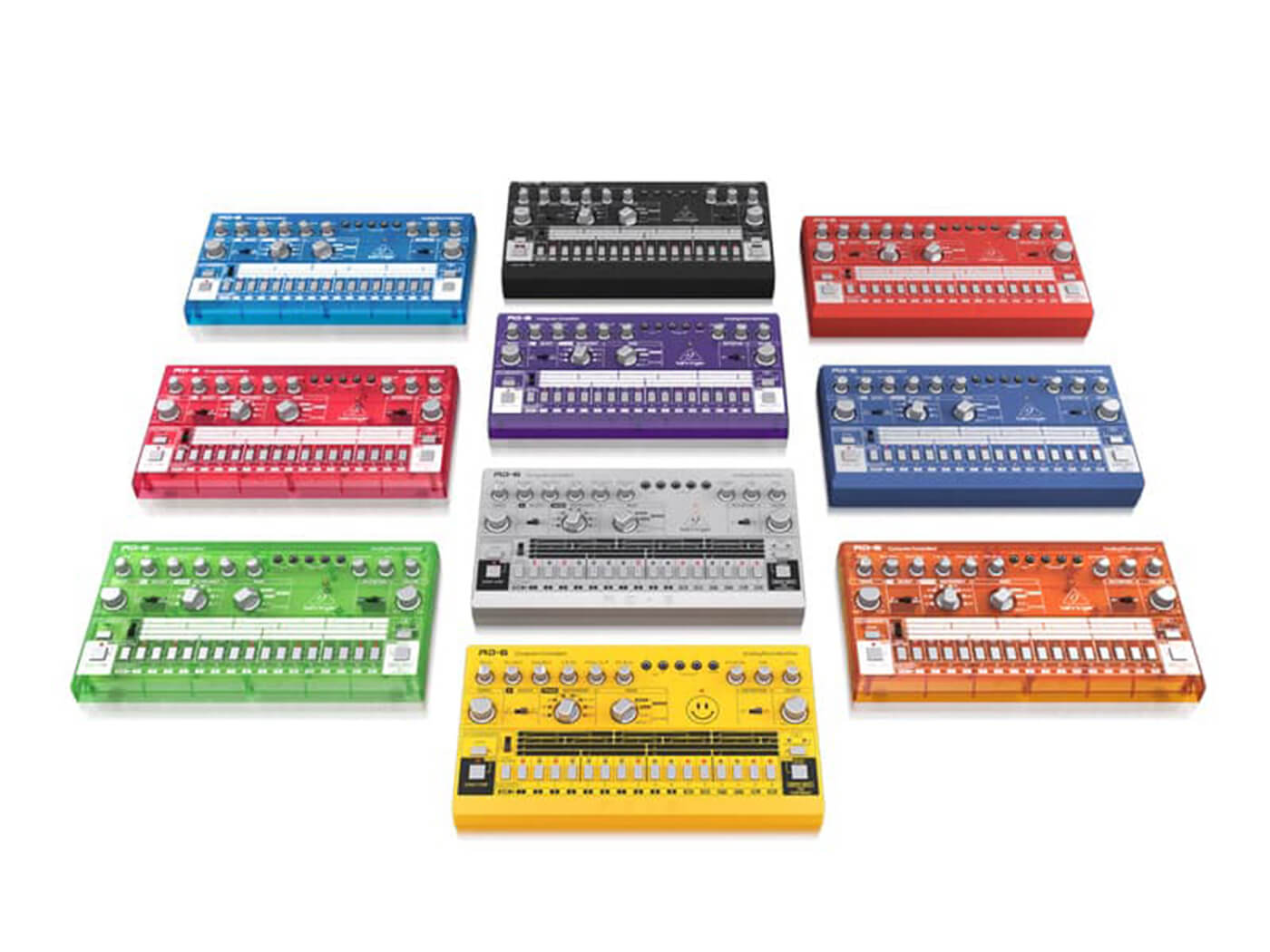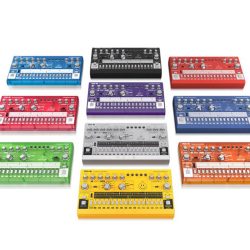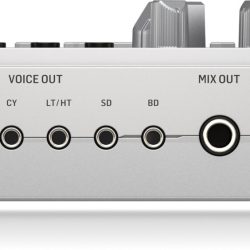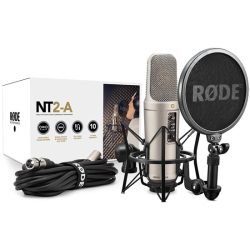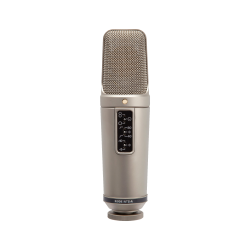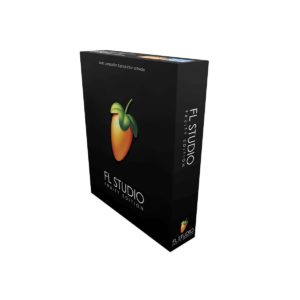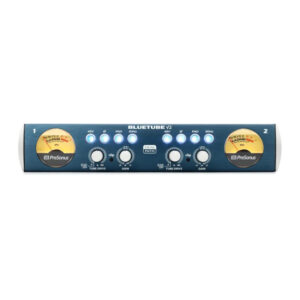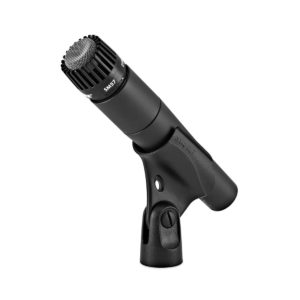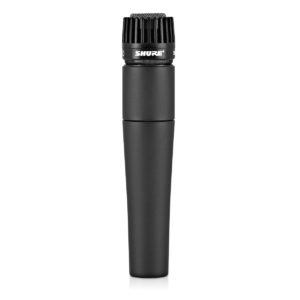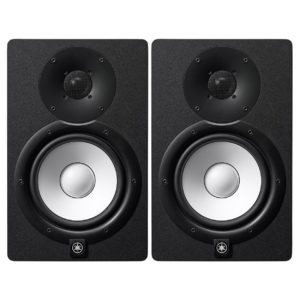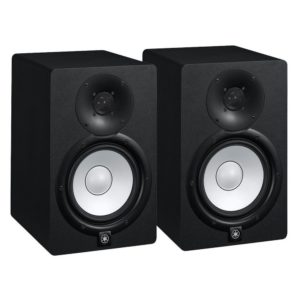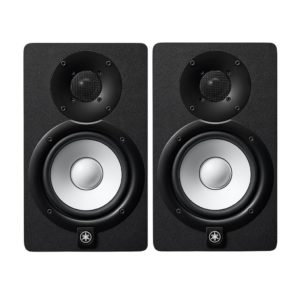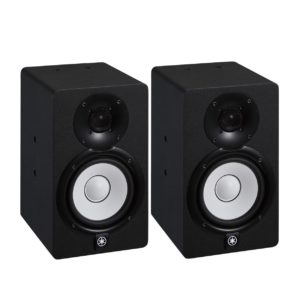- Amazing Drum Machine with true analog circuitry for classic sound performance
- Authentic reproduction of original circuitry with matched transistors
- 8 original drum sounds with mix parameters and global accent capability
- Highly acclaimed and authentic clap sound from the DR-110 drum machine
- 6 independent analog outputs for external processing or recording your rhythms as multi-track audio
- Easy-to-use 16-step drum sequencer with real-time switching between 32 separate patterns
- Patterns can be chained into full songs with up to 250 bars
- Distortion circuitry modeled after the RAT* adds insane spice and edge to your sounds
- 16 authentic-style step buttons with LED indicators for easy pattern creation
- 11 controls and 26 switches to give you direct and real-time access to all important parameters
- MIDI and USB implementation for synchronization and connection to external devices
- Sync options include USB, MIDI, Clock and Internal for maximum versatility
RD-6-SR
The RHYTHM DESIGNER RD-6-SR provides all the tools you need to become a master beat-maker, including: 8 drum sound and a 16-step sequencer – for a quick and easy-to-use drum machine that’ll shake the house! Whether you’re new to drum programming or a seasoned pro looking to enhance your setup, the RD-6-SR has everything you need to step up to the big leagues.
Masterpiece Rejuvenated
Great care has been taken in designing the RD-6-SR to achieve new possibilities in beat creation by reviving a timeless design from one of the most classic drum machines of yesteryear. By taking a fresh and modern approach on a classic drum machine, the RD-6-SR gives you the power to harness the phenomenal sound of the venerable TR-606 and tap into some new features as well. Punchy bass drums through sizzling hi-hats and even the authentic and renowned BR-110 clap sound can be manipulated to take your rhythm performance to the next level. This is an analog beat-making monster!
Complete Control
Built to enhance the way you perform, the RD-6-SR boasts a 16-step drum sequencer which allows for real-time switching between 32 separate patterns. Start building song structures on-the-fly and even edit them to your liking. Mix any of the 8 drum sounds by adjusting their dedicated level knobs. The RD-6-SR also comes with a distortion based on the venerable DS-1. Add spice and a bit of edge to your tone by flipping the Distortion switch on and adjusting the amount and tone of the distortion. Each pattern you create can also be chained into a whole song up to 256 bars which adds up to eight and a half minutes of beats perfect for those spicy jams where you just can’t stop.
USB Control
To bring the RD-6-SR into the modern age, USB connectivity has been added for sync and MIDI triggering. This enables the RD-6-SR to be controlled by your DAW if desired, allowing songs and patterns to be swapped or individual sounds to be triggered.
The Numbers
The RD-6-SR has 11 knobs and 26 buttons, all laid out in a highly-intuitive format that puts the fun back into your beat creation. Input and output connections include: Open or Closed Hi-Hat, Clap, Cymbal, Low and Hi Tom, Snare and Bass Drum Voice Outs; Start/Stop for connecting a foot pedal; MIDI In, Out and Thru over USB for connecting the RD-6-SR to a DAW and 5 pin MIDI ports.
A Brief History of Drum Machines
From its humble beginnings as a rhythmic support to organists, to later setting dance floors ablaze with unrelenting and hypnotic beats, the drum machine has been one of the most unappreciated of all musical inventions. Uncompromising in its metronomic precision, the drum machine provides a flawless rhythm section that never tires of playing the same four-bar loop. However, when put into the right hand and proper musical context, they can be finessed to create awe-inspiring rhythmic artistry.
First Drum Machine – The Rhythmicon
The ground-breaking Rhythmicon was created by Russian inventor Leon Theremin in 1931. The machine was a collaboration with American composer Henry Cowell and can produce up to 16 different rhythms with a strikingly bleepy sound.
Chamberlin Rhythmate
The Rhythmate was a pioneering drum machine, which used tape loops to create rhythms to accompany an organ player. The machine had 14 tape loops with a sliding control that allowed playback of different tracks on each piece of tape that could be combined to create many variations.
Roland CompuRhythm CR-78
The CR-78 is a classic analog rhythm machine – and was the first to use a microprocessor. The 34 built-in patterns could be altered at a push of a button, providing the user significantly more creative control. As for the drum sounds, the CR-78 offers 14 very electronic, yet analog drum tones. Sounds include Kick, Snare, Rim, Cow Bell, Hi-Hats, Cymbals, Congas, Bongos, Tambourine and Guiros. With 11 variation effects and the ability to adjust tempo, accents and fade in/outs, the CR-78 is still capable of producing exquisite rhythms for use in ambient Hip-Hop and many other forms of music. One of the best-known uses of the CR-78 can be heard in Phil Collin’s 1981 hit, “In the Air Tonight”.
Roland TR-808 Rhythm Composer
In the worlds of Techno, House, Hip-Hop and R&B, the Roland TR-808 is an indispensable machine. Its signature sound, the booming bass drum that has created the groove of hits by everyone from Marvin Gaye to Afrika Bambaata to 808 State and is currently one of the most frequently used sounds in modern music.
Despite its current iconic status, when it was released in 1980, the 808 was not a top seller by any means. There were lots of people who didn’t like the simplistic sound in preference to more expensive machines such as the digitally-sampled LinnDrum. However, producers in the underground acid-hose music scene leaned towards the TR-808 and the entire Roland product line, including the TB-303, SH-101 and TR-909, giving these boxes their iconic status and modern day price tags to match.
Roland TR-909 Rhythm Composer
The TR-909 featured the sampled and analog drum sounds that have become synonymous with house and techno music. This programmable, step-sequenced drum machine was launched in 1983, and while it was not an instant commercial success, it soon gained an underground following. With DIN Sync 24, MIDI In and Out and individual outputs for each sound, the TR-909 could be integrated into any studio and offers numerous controls for controlling each sound. The TR-909 has been used by The Prodigy, The Chemical Brothers, Moby, Fatboy Slim, Orbital and Jean Michel Jarre. It would be hard to find a techno or house producer who hasn’t used a TR-909 kick in a track at some point.
LinnDrum
The inspirational LinnDrum was created by Linn Electronics in 1982, using superior sounding samples that gave birth to a new generation of users who are synonymous with the sound of the 80’s. The LinnDrum was used on countless classics tracks throughout the ’80s, including hits by Prince, Tears for Fears and Madonna.
Oberheim DMX
Launched in 1981, the Oberheim DMX also used sampled sounds of real drums, individual tuning controls for each voice and a swing function to add a little grove. The controls gave the DMX the ability to emulate a real drummer via timing variations, rolls and flams to create a more human “feel”. The DMX has 11 samples, which can be used to create 24 individual drum sounds and allows up to 8 voices simultaneously. It has 8 separate outputs for individual channel processing and holds up to 100 sequences and 50 songs.
The DMX’s hard-hitting and convincing drum sound made it attractive to artists and producers in the burgeoning Hip-Hop culture and it is featured on many of the scenes early innovative records. New Order used the DMX to great effect on their 1983 single, “Blue Monday” with its repeating bass drum pattern.
E-mu SP-1200
Released in 1987, the E-mu SP-1200 was quickly accepted into the Hip-Hop world due to its limited bandwidth sampling rate, classic 4-pole filter and 12-bit sampling resolution. This all contributed to the unit’s gravelly sounds, which have been featured on many hit recordings. The SP-1200’s ability to build the main structure of a song within a single piece of gear (a first in the industry) cut Hip-Hop artists loose from the studio to perform live alongside the machine. Famous users include the Beastie Boys, The Prodigy and Daft Punk.
AKAI MPC60
The celebrated Akai MPC was designed by Roger Linn and produced by Akai from 1988 onwards. The MPC allowed artists to use new clever ways to manipulate small samples to create a completely new track. These snippets were often lifted from other records and thus started a new style of “Sound-Collage”. The original MPC60 only allowed sample lengths of up to 13 seconds. Sampling memory was expensive at the time, which steered people to records at higher5 speeds in order to gain more time. The side effect was playback at a lower resolution, which contributed to the grittiness of the sound. Famous users include Kanye West, Dr. Dre and Mark Ronson.
Why Buy From Marshall Music
At Marshall Music, we’re all passionate and highly experienced musicians that love what we do. Family run and family owned for over 35 years, we stock a huge variety of the very best brands in the world of musical instruments, music technology, professional audio and accessories. At Marshall Music, you’ll get the right advice – exactly what you need to make the best possible purchasing decision. We’ll do all we can to make sure you get the right thing at the right price as efficiently as possible – leaving you with a smile on your face!
